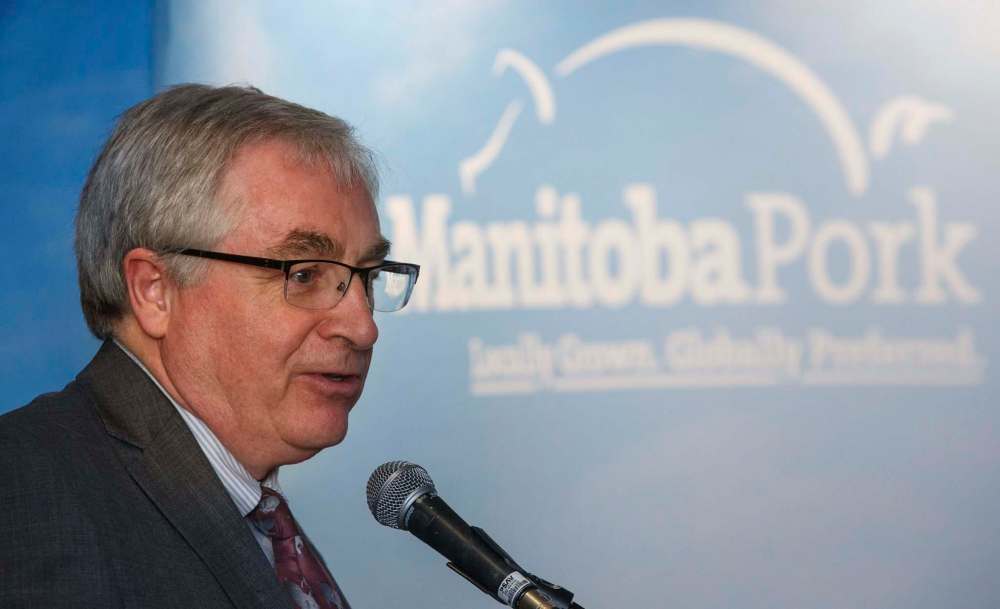Activist group hogs the spotlight
Advertisement
Read this article for free:
or
Already have an account? Log in here »
To continue reading, please subscribe:
Monthly Digital Subscription
$1 per week for 24 weeks*
- Enjoy unlimited reading on winnipegfreepress.com
- Read the E-Edition, our digital replica newspaper
- Access News Break, our award-winning app
- Play interactive puzzles
*Billed as $4.00 plus GST every four weeks. After 24 weeks, price increases to the regular rate of $19.00 plus GST every four weeks. Offer available to new and qualified returning subscribers only. Cancel any time.
Monthly Digital Subscription
$4.75/week*
- Enjoy unlimited reading on winnipegfreepress.com
- Read the E-Edition, our digital replica newspaper
- Access News Break, our award-winning app
- Play interactive puzzles
*Billed as $19 plus GST every four weeks. Cancel any time.
To continue reading, please subscribe:
Add Winnipeg Free Press access to your Brandon Sun subscription for only
$1 for the first 4 weeks*
*$1 will be added to your next bill. After your 4 weeks access is complete your rate will increase by $0.00 a X percent off the regular rate.
Read unlimited articles for free today:
or
Already have an account? Log in here »
Hey there, time traveller!
This article was published 26/04/2017 (3071 days ago), so information in it may no longer be current.
Hog Watch rides again.
The activist group that played watchdog to Manitoba’s booming hog sector from 1999 to 2006 has reunited to take on the industry again.
The original nine directors of Hog Watch Manitoba are back: Hugh Arklie, Vicki Burns, John Fefchak, Beat Gamper, Janine Gibson, Glen Koroluk, Larry Powell, Ruth Pryzner and Fred Tait.

“I think what that says is even though we’re much more advanced in years, we still have the strength of our convictions and the passion about this,” Burns said.
Andrew Dickson, general manager of producer group Manitoba Pork, sounded less than thrilled by the announcement.
“We’re not the evil villain in this thing. We follow the toughest sustainable development principles in how we do business,” he said.
Plans by the province to loosen rules for the hog sector cued Hog Watch’s resurrection. The Pallister government intends to lift the 11-year-old moratorium on new hog barns.
That could increase hog production by 25 per cent over the next decade, says Manitoba Pork, the pork producers’ organization.
The province is also looking at increasing the maximum size of manure storage facilities on farms and reducing the paperwork necessary to design such facilities.
Burns said Hog Watch dissolved when the NDP government instituted the moratorium.
“It’s been quiet on this front for the past decade anyway because there hasn’t been any new development,” she said.
That’s about to change.
“We’ve had quite a few inquiries from general public that hog industry expansion is being planned without reassurances it won’t contribute to further problems with our lakes, particularly Lake Winnipeg,” Burns said.
Hog Watch fears relaxing restrictions could lead to contamination of groundwater and increase nutrient pollution in Lake Winnipeg.
A doubling of phosphorus levels in Lake Winnipeg in the mid-1990s coincided with a period of rapid expansion in Manitoba’s hog sector, Burns said.
“There’s always been a lot of reluctance by government to point fingers at the hog industry, but the fact is pigs create a lot of manure,” she said.

There are now about eight million hogs in Manitoba, compared with two million in the early 1990s, according to Burns.
“That’s a lot of phosphorus and nitrogen being put onto the land. If we don’t ensure crops are taking it all up, it runs off and gets into the water, and into Lake Winnipeg,” she said. “Members of Hog Watch feel the need to really pressure government to show us the science” that justifies relaxation of some rules.
Dickson said an actual moratorium existed for only a short time. It was replaced by a provision that any new or expanded hog barns have an anaerobic digester system.
The cost for a standard hog barn is about $1 million. The cost for a anaerobic digester is about $1.5 million. That effectively kiboshed hog expansion in Manitoba, he said.
“It’s essentially a whole series of tanks and pumps and storage facilities, and you store all the manure and cook it, and you try to burn off,” Dickson said.
It aerates out the nitrogen value of fertilizer, but the producer is left with phosphorus sludge to spread on the land.
The provision for anaerobic digesters is expected to be eliminated.
Dickson said their cost is hugely subsidized in Europe and they are primarily found in areas where land is scarce for spreading manure, such as the Netherlands.
bill.redekop@freepress.mb.ca
History
Updated on Wednesday, April 26, 2017 2:06 PM CDT: Photo added.
Updated on Thursday, April 27, 2017 9:57 AM CDT: Writethrough


